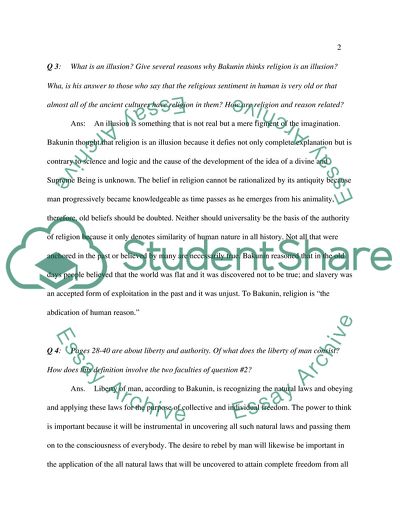Cite this document
(Michael Bakunin: God and the State Assignment Example | Topics and Well Written Essays - 1250 words, n.d.)
Michael Bakunin: God and the State Assignment Example | Topics and Well Written Essays - 1250 words. https://studentshare.org/people/1713555-answer-every-third-question-about-michael-bakunin-with-1-2-paragraph-answers
Michael Bakunin: God and the State Assignment Example | Topics and Well Written Essays - 1250 words. https://studentshare.org/people/1713555-answer-every-third-question-about-michael-bakunin-with-1-2-paragraph-answers
(Michael Bakunin: God and the State Assignment Example | Topics and Well Written Essays - 1250 Words)
Michael Bakunin: God and the State Assignment Example | Topics and Well Written Essays - 1250 Words. https://studentshare.org/people/1713555-answer-every-third-question-about-michael-bakunin-with-1-2-paragraph-answers.
Michael Bakunin: God and the State Assignment Example | Topics and Well Written Essays - 1250 Words. https://studentshare.org/people/1713555-answer-every-third-question-about-michael-bakunin-with-1-2-paragraph-answers.
“Michael Bakunin: God and the State Assignment Example | Topics and Well Written Essays - 1250 Words”. https://studentshare.org/people/1713555-answer-every-third-question-about-michael-bakunin-with-1-2-paragraph-answers.


